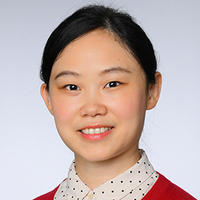Institute of Molecular Biology (IMB)
Roopesh Anand Joan Barau Petra Beli Ulrich Hohmann Claudia Keller Valsecchi René Ketting Anton Khmelinskii Katja Luck Laura Lorenzo-Orts Christof Niehrs Jan Padeken Stamatis Papathanasiou Katharina Papsdorf Sandra Schick Helle Ulrich Siyao Wang Sina WittmannEpigenetic transgenerational inheritance of paternal DNA damage

From the atomic bomb in Hiroshima and Nagasaki to the Chornobyl accident, the transgenerational effects of radiation-induced DNA damage have been widely studied through epidemiological and genetic approaches, but these have yielded contradictory results. Recently, we identified a novel mechanism that underlies the transgenerational genetic and epigenetic effects of paternal DNA damage. Using sex-separated C. elegans strains, we found that paternal, but not maternal, exposure to ionising radiation (IR) leads to transgenerational embryonic lethality. This lethality is caused by the persistence of DNA double-strand breaks (DSBs) in the F1 generation, where a highly enriched heterochromatin structure blocks the accessibility of the homologous recombination (HR) repair machinery. This project will investigate how DNA damage in sperm alters the epigenome of the offspring, and whether these changes in the epigenome can affect the genome stability and longevity of subsequent generations. By answering these questions, we aim to identify potential therapeutic approaches to improve the genome stability of the offspring carrying paternally inherited DNA DSBs.
Positions held
- Since 2023: Group Leader, Institute of Molecular Biology (IMB),Mainz, Germany
- Since 2022: Group Leader, Institute for Genome Stability in Ageing and Disease (IGSAD), University Hospital of Cologne, Cologne, Germany
- 2015 – 2022: Postdoctoral Researcher, CECAD, University Hospital of Cologne, Cologne, Germany
Education
- 2010 – 2015: PhD in Molecular Cancer Study, The University of Manchester, Manchester, UK
- 2005 – 2010: B.Med. in Preclinical Medicine, Southern Medical University, Guangzhou, China
Selected publications by Siyao Wang
Wang S*, Meyer DH, Schumacher B* (2022) Inheritance of paternal DNA damage by histone-mediated repair restriction. Nature, 613:365–374 (Co-corresponding author) Link
Soltanmohammadi N#, Wang S#, Schumacher B (2021) Somatic PMK-1/p38 signaling links environmental stress to germ cell apoptosis and heritable euploidy. Nat Commun. 13:701 (Co-first author) Link
Wang S, Meyer DH, Schumacher B (2020) H3K4me2 regulates the recovery of protein biosynthesis and homeostasis following DNA damage. Nat Struct Mol Biol. 27:1165–1177 Link
Wang S, Fisher K, Poulin GB (2011) Lineage specific trimethylation of H3 on lysine 4 during C. elegans early embryogenesis. Dev Biol. 355:227-238 Link
Fisher K, Gee F, Wang S, Xue F, Knapp S, Philpott M, Wells C, Rodriguez M, Snoek LB, Kammenga J, Poulin GB (2013) Maintenance of muscle myosin levels in adult C. elegans requires both the double bromodomain protein BET-1 and sumoylation. Biol Open 2(12):1354–1363 Link